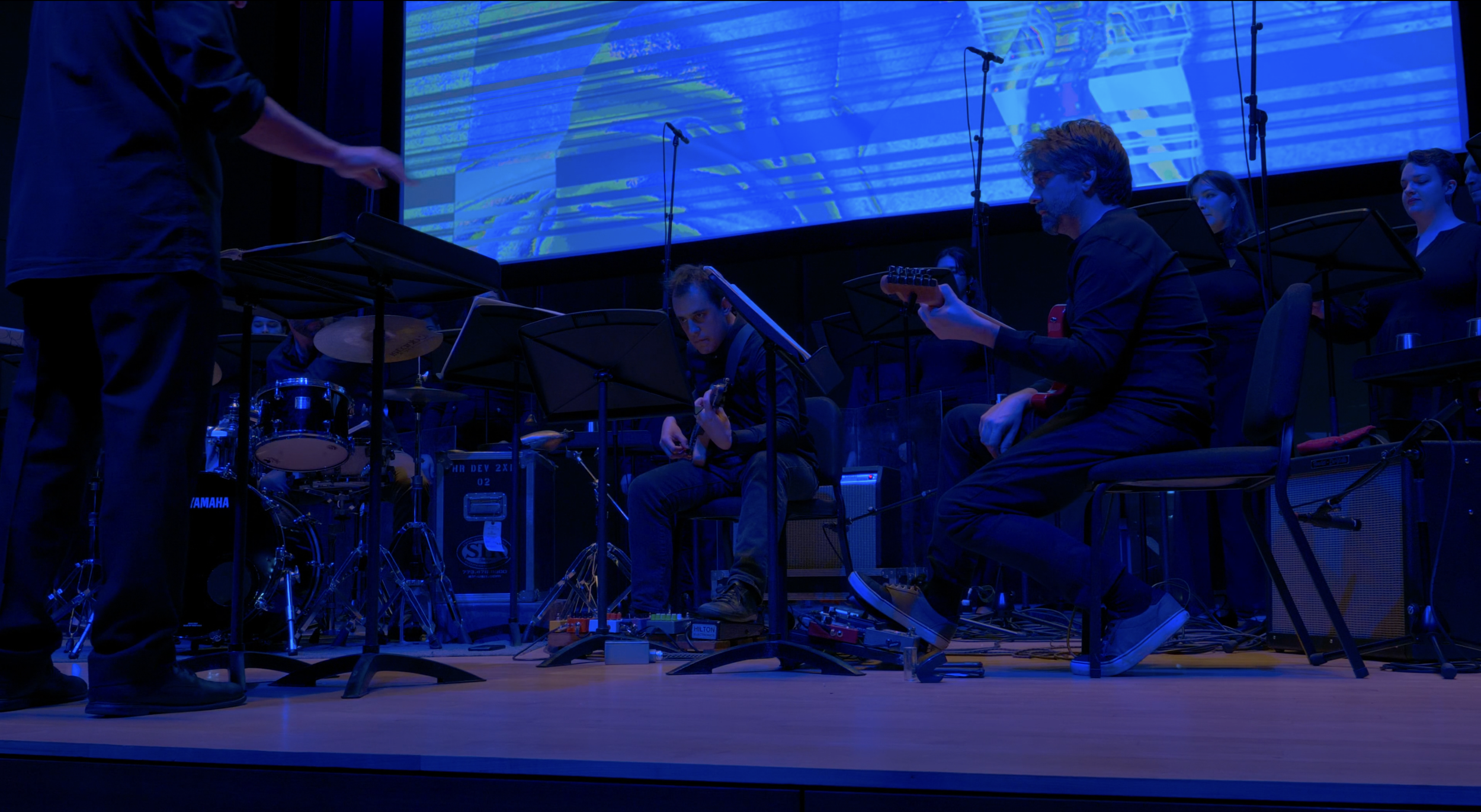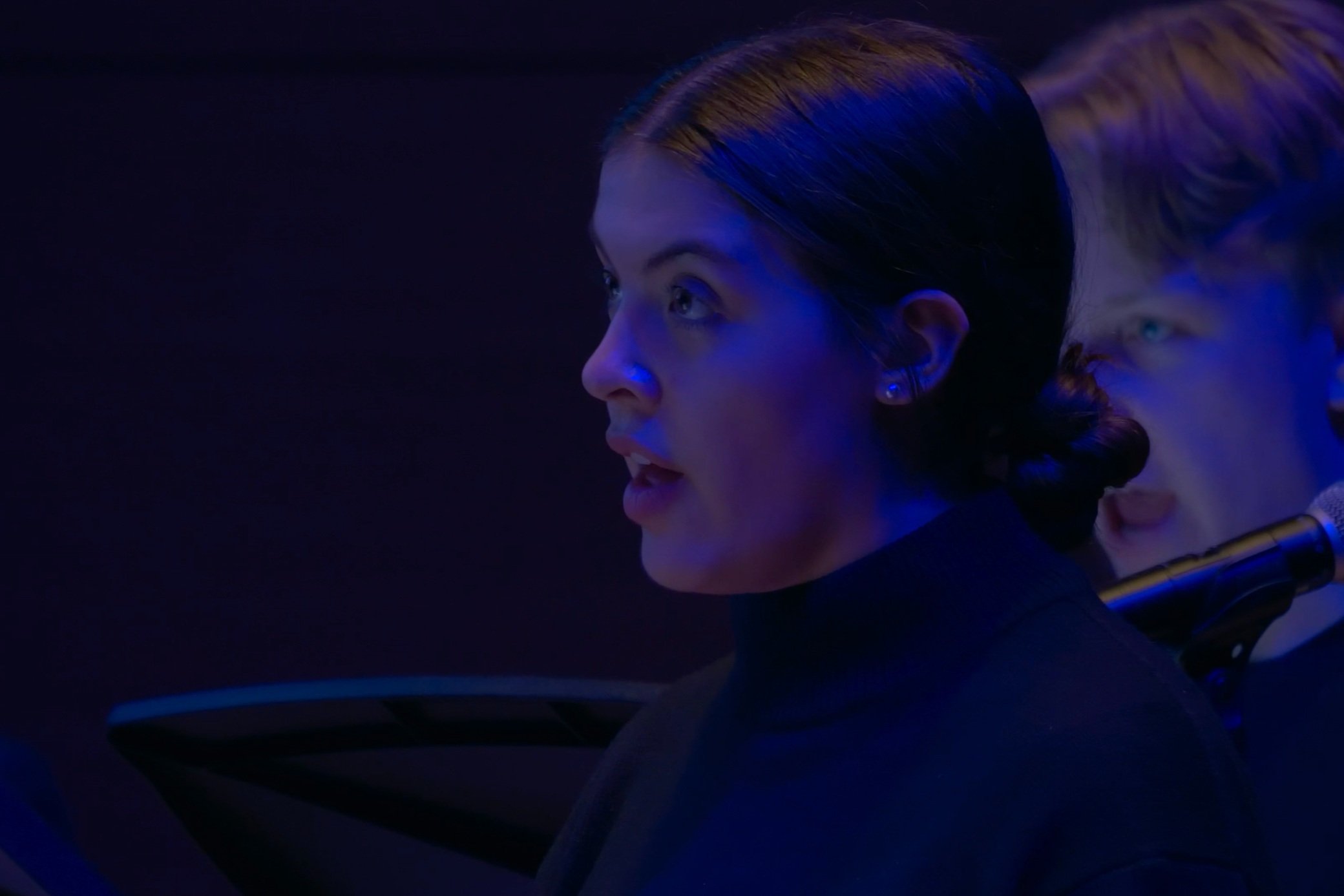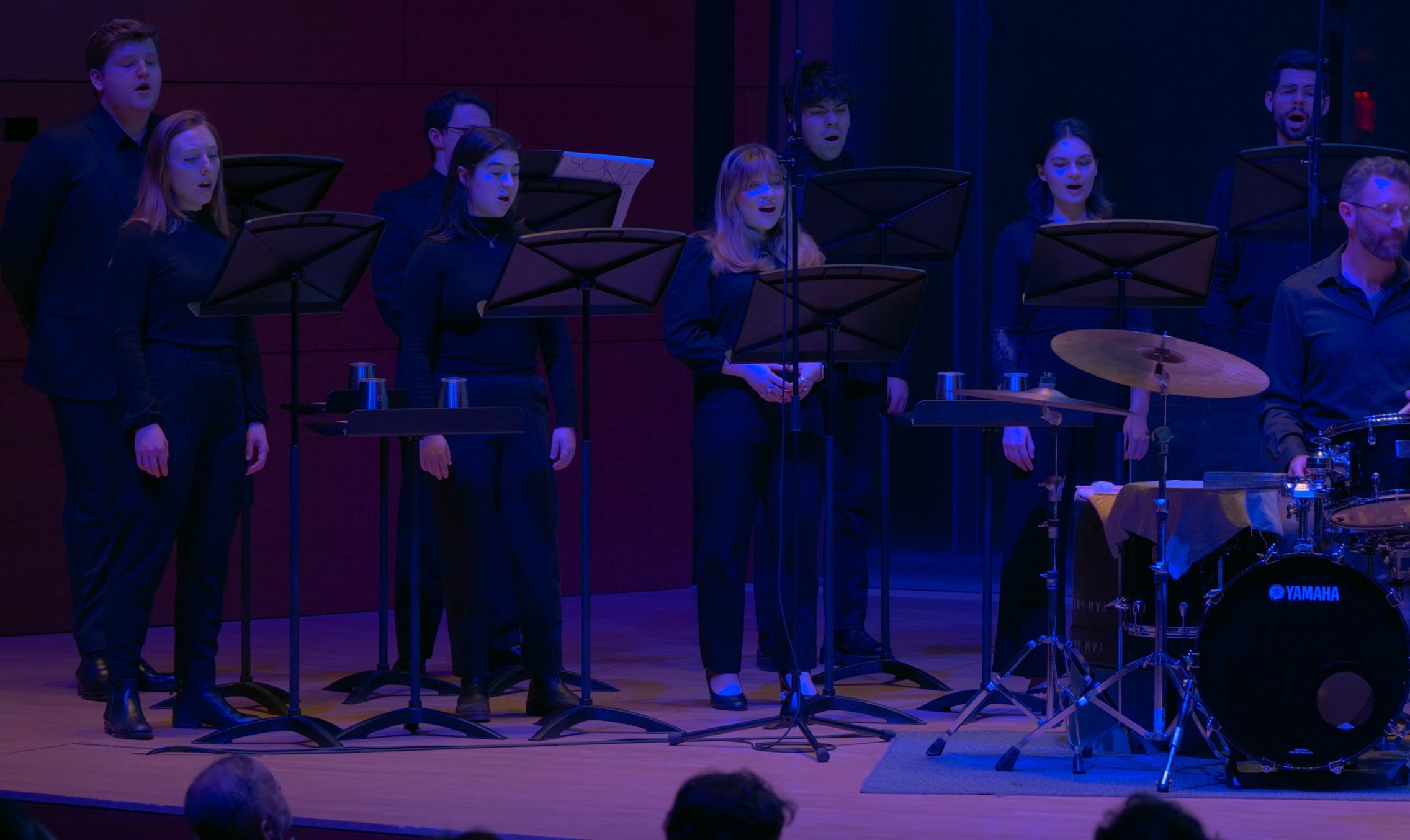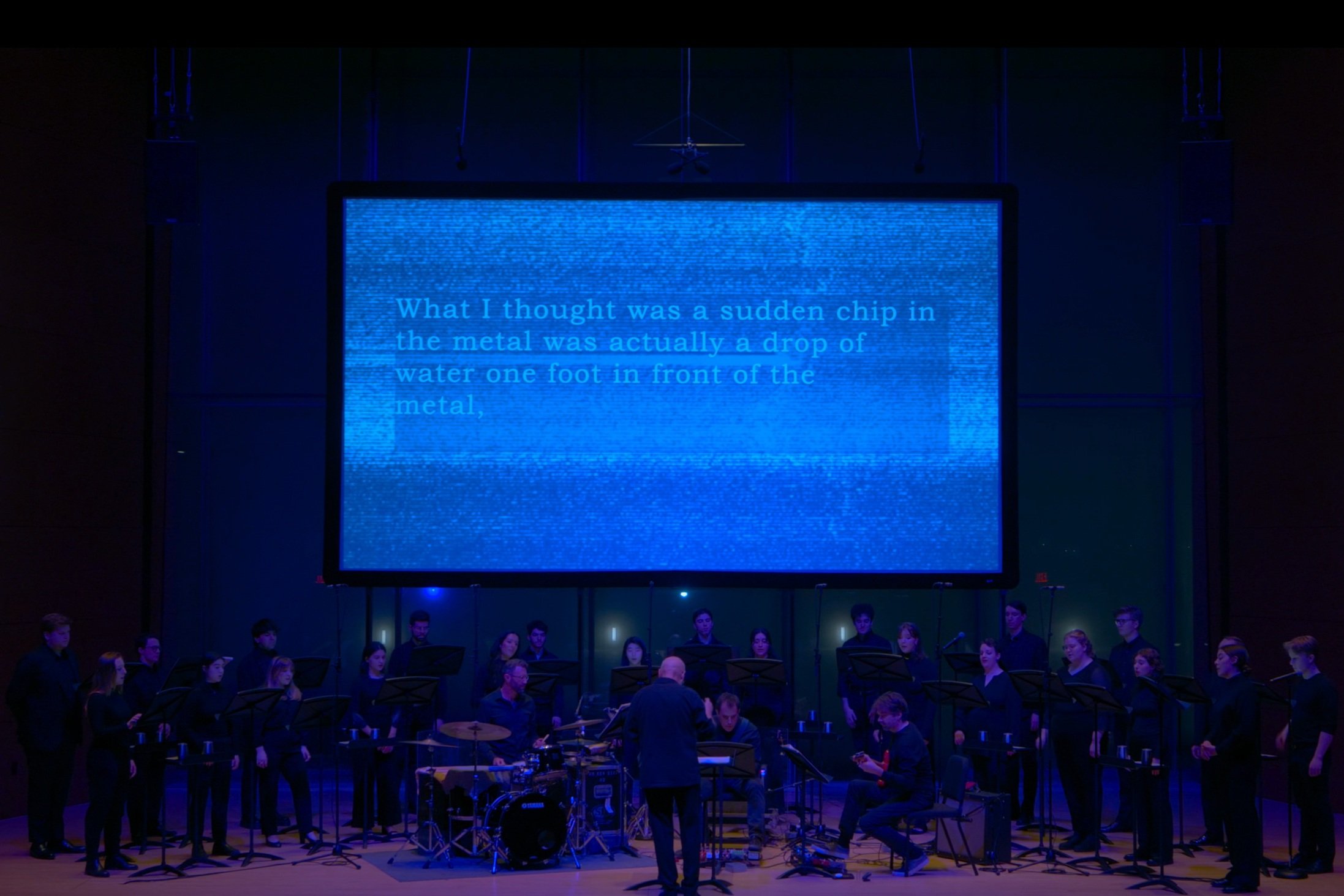





Sound From the Bench
Sound From the Bench is a reaction to Jena Osman's incredible book "Corporate Relations," a collection of poems that follows the historical trajectory of corporate personhood in the United States. The five movements combine language taken from landmark Supreme Court Cases with words from ventriloquism textbooks.
A finalist for the 2018 Pulitzer Prize, Sound From the Bench is a 35-minute cantata for chamber choir, two electric guitars and drums, with a libretto by Jena Osman. It was co-commissioned by Volti and The Crossing.
Sound From the Bench is built around the tension between the human voice and electric guitar. The electric guitar can sound like literally anything. Through circuitry, programming, and analog and digital manipulation, the pitches and rhythms a guitarist plays can be utterly transformed, erasing all human touch. It speaks through an amplifier and could easily drown out any voice. These cyborg-esque qualities contrast the human voice, both in its inescapable limitations and the complex differences found in every individual vocal timbre.
No mouth is Osman's paraphrase of the central reasoning behind the majority in Bellotti v. First National Bank, the 1978 case upon which Citizens United is based: because corporations don't have a literal mouth, they cannot literally speak, therefore advertising is their only available method of communication and must be considered speech (and is entitled to First Amendment protections as such).
The phrase the very heart, also found in the second movement, is excerpted from Justice White's dissent in this case: "It has long been recognized, however, that the special status of corporations has placed them in a position to control vast amounts of economic power which may, if not regulated, dominate not only the economy but the very heart of our democracy, the electoral process."
The central movement sets words from the oral argument to Citizens United. This poem of Jena's was a literal erasure of the Supreme Court document – every phrase appeared in order, and in a position approximating the horizontal spot it appeared on the page. When Hearne printed out the full 83-page oral argument and blacked out every phrase that Jena hadn't included, the remaining words jumped out at me and started to take on new meanings and inferences. That strange, new energy helped propel the decontextualized text into music.
The time at which the phrases appear approximate and in some way preserve the place at which they appear in the original document. The music between Osman's text, that which fills the "blank pages," sometimes includes a quote from Thomas Tallis's motet Loquebantur Variis Linguis (the text is: "The Apostles spoke in different tongues – Alleluia.") Aside from loving this music, I liked the image of our Justices as apostles.
What could personhood even mean when it is applied to non-human things? The courts have systematically granted constitutional rights to corporations since the Civil War - we concede that a corporation can "speak" even though it has no mouth – and these rights have come at the expense of both the private citizen and the government.
-
composer Ted Hearne
text Jena Osmancommissioned by The Crossing and Volti
-
3 instrumentalists (two electric guitars and drummer)
SATB choir
Venue must have video capacity.
Amplification requirements vary depending on venue and size of choir.
Contact Unsettlement Music for more information about licensing or presenting a performance.
-
2014 premiere of first version by Volti (Robert Geary, conductor) and The Crossing (Donald Nally, conductor)
2016 Los Angeles Philharmonic and Los Robles Chorale; John Adams, director2017 by The Crossing (Donald Nally, conducutor): National Sawdust, Brooklyn NY; The Gardner Museum, Boston, MA; Philly Fringe, Philadelphia, PA
2023 Northwestern University; Donald Nally, conductor
released 2017 Cantaloupe Music | album artwork by Seth Gadsen